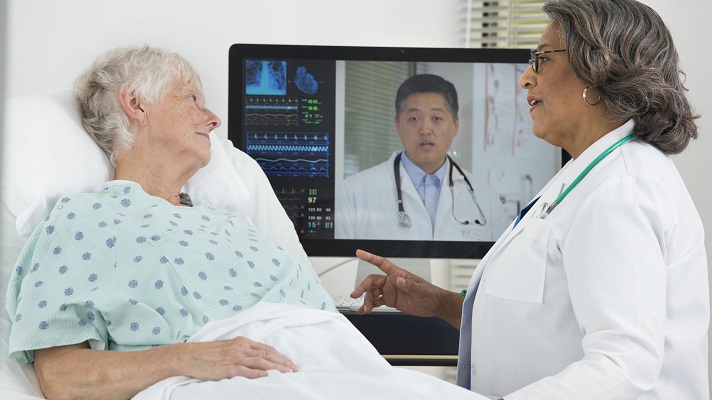The debate over the post-COVID future of telemedicine is now on. Telemedicine proponents claim that it increases efficiency and can help alleviate the doctor shortage. Critics say telemedicine results in lower quality care, security issues, and a lack of personalization. Now, a recently released study seems to lean in the favor of proponents.
The study, conducted by RTI International and published in the Annals of Internal Medicine, was a meta-analysis of twenty clinical trials conducted between January 2013 and March 2021. Researchers particularly wanted to know whether telemedicine has the ability to either enhance or completely replace traditional in-office visits.
It is important to note that the study looked at clinical trials that were conducted mostly before COVID was a thing. Why is this important? Because it shows the results of telemedicine delivery outside of the COVID environment. As we know, COVID has upended most of what was considered normal. So being able to see the results of telemedicine outside of that influence gives us a clearer picture of what is really happening.
Care At Least As Good
The results of the study were not all that surprising to people who generally have a good view of telemedicine. Researchers discovered that the telemedicine visits in question resulted in care just as good as what patients would have received in person. In some cases, the care was even better.
It should be noted that the researchers positive review of telemedicine related to things that could be easily managed through a technology platform. For example, routine consultations with a diabetic whose markers are good and who takes their medicine as prescribed can be done just as effectively through videoconferencing as in-office visits.
By the same token, telemedicine isn’t the best platform for diagnosing conditions or evaluating a patient’s prognosis. But that is changing, at least in terms of diagnostics.
Telemedicine Solutions with Diagnostics
Most conversations about telemedicine are based on the premise of visiting with a healthcare professional via videoconferencing. However, technology improvements are allowing solution providers to go beyond mere consultations. Consider CSI Health out of San Antonio, Texas.
CSI Health offers telemedicine solutions that include on-board diagnostics. Their medical kiosks, virtual clinics, and portable telemedicine solutions feature some of the most common diagnostic tools, including heart monitor, blood pressure cuff, and even sonogram. All the collected data is immediately sent to the clinician’s office in real time.
Built-in diagnostic tools are gradually making telemedicine more appropriate for situations involving more than mere consultation. And still, there are some situations for which it is not appropriate.
A Time and Place for Everything
An unbiased approach to telemedicine acknowledges that there is a time and a place for everything. As telemedicine options expand, few are likely to argue that patients will never have to see their physicians in person. Indeed, companies like CSI Health have not made it their mission to eliminate in-person visits. Rather, the goal is to avoid visiting the office or hospital when doing so is appropriate.
As you might expect, there are plenty of people in the healthcare industry resisting the transition to telemedicine. They all have their reasons. But truth be told, the tide isn’t going to be turned back. Now that people have been given the opportunity to utilize telemedicine, they will continue to do so.
The only question remaining for healthcare providers and technology companies is how they will adapt to this new healthcare paradigm. Those who get on board now will do better in the long run. Those who fight it will find themselves being left behind.











Leave a Reply